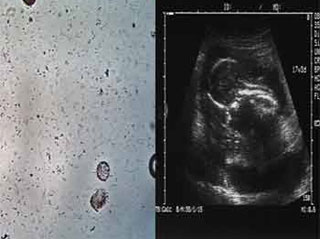According to a new study conducted by the U.S. Centers for Disease Control and Prevention, infants conceived as a result of infertility treatments were more prone to birth defects as compared to naturally born babies.
These children are two to four times more likely to certain types of birth defects like heart problems, cleft lip or palate and abnormalities in the esophagus or rectum. These results apply only on single born infants and not to twins or other multiples. These defects are very rare in general. They occur once in 700 births, so the risk is very low even with infertility treatments.
Assisted reproductive technology (ART) includes in-vitro fertilization. It is a procedure where eggs are surgically removed from a woman’s womb and combined with a sperm in the laboratory and then again placed in the woman’s body or donated to another woman.
“Today, more than one percent of infants are conceived through ART, and this number may continue to increase. While the risk is low, it is still important for parents who are considering using ART to think about all of the potential risks and benefits of this technology,†states Dr. Jennita Reefhuis, an epidemiologist with the federal Centers for Disease Control and Prevention and also one of the study’s author and she further says, “None of these are lethal. The individual risk of birth defects is still very small. But it is very important for couples who are considering artificial reproductive technology to have full disclosure.â€
According to another study nearly 12% women in the US have undergone infertility procedures. It is also believed that around 1% of all births in the United States occur as a result of infertility treatment. These procedures generally involve a lot of risk. Older women mostly opt for this treatment as compared to younger ones who don’t need any assistance.
It is believed that women who have difficulty conceiving or carrying a fetus are usually more prone to pregnancy complications and birth defects, irrespective of the use of any infertility technology.
Dr Reefhuis and her colleagues state that, “Subfertile women might have a higher risk of having a child with a birth defect regardless of whether infertility treatments are used.â€
This study is among the first few who have unveiled the link between infertility treatments and birth defects. It is stated that there is twice the risk of heart defect and cleft lip and more than four times the risk of gastrointestinal defects in infants born as a result of infertility treatments as compared to normally conceived infants.
They studied the data acquired from 281 births resulting from assisted reproductive technology and 14,095 natural births. The study does not detail on why major structural birth defects are more likely to take place through infertility technology as compared to normally conceived infants.
The report is being published in the journal Human Reproduction.

